Act I
Scene 1
Prince Siegfried and his friends are celebrating his coming-of-age. The Queen gives him a crossbow and reminds him that the time has come to consider marriage. At the ball tomorrow he must choose a bride. Night falls. The guests depart. Siegfried is tormented by forebodings that are unclear. Seeing a flock of white swans in the sky the Prince sets out for the lake.
Scene 2
A lake in a forest glade. On coming ashore the swans are transformed into girls and Siegfried drops his crossbow, staggered by the beauty of the Swan Queen. Odette tells him that the swan-maidens are under the power of the evil sorcerer von Rothbart and only the power of wholehearted love can undo the magic spell. Siegfried swears eternal love to Odette.
Act II
A ball at the castle. One after another, beauties from different countries appear before the Prince, but not one of them can grasp his attention. Siegfried’s heart belongs to Odette. The sounds of a fanfare announce the arrival of more guests. Disguised as a noble knight, von Rothbart enters, and with him is his daughter Odile. Siegfried is struck dumb – this beautiful maiden is exactly like Odette! Odile gives the Prince no time to come to his senses, she lures and bewitches him, and the Prince is so attracted that he declares his love for her. Von Rothbart is triumphant. Understanding the full horror of the deception of which he has been the victim, Siegfried rushes to the lake and to Odette.
Act III
Night. The shore of the lake. Odette is telling her friends about von Rothbart’s villainy and Siegfried’s betrayal. The Prince appears and begs her forgiveness. Black swans sent by von Rothbart attempt to separate the lovers, but Siegfried defeats the sorcerer. The powers of evil are at an end and the rays of the rising sun bring life, love and happiness...
Swan Lake is generally presented in either four acts, four scenes (primarily outside Russia and Eastern Europe) or three acts, four scenes (primarily in Russia and Eastern Europe). The biggest difference of productions all over the world is that the ending, originally tragic, is now sometimes altered to a happy ending.
Prologue
Some productions include a prologue that shows how Odette first meets Rothbart, who turns Odette into a swan.
Act 1
A magnificent park before a palace
[Scène: Allegro giusto] Prince Siegfried is celebrating his birthday with his tutor, friends and peasants [Waltz]. The revelries are interrupted by Siegfried's mother, the Queen [Scène: Allegro moderato], who is concerned about her son's carefree lifestyle. She tells him that he must choose a bride at the royal ball the following evening (some productions include the presentation of some possible candidates). Siegfried is upset that he cannot marry for love. His friend Benno and the tutor try to lift his troubled mood. As evening falls [Sujet], Benno sees a flock of swans flying overhead and suggests they go on a hunt [Finale I]. Siegfried and his friends take their crossbows and set off in pursuit of the swans.
Act 2
A lakeside clearing in a forest by the ruins of a chapel. A moonlit night.
The "Valse des cygnes" from act 2 of the Ivanov/Petipa edition of Swan Lake
Siegfried has become separated from his friends. He arrives at the lakeside clearing, just as a flock of swans land [Scène. Moderato]. He aims his crossbow [Scène. Allegro moderato], but freezes when one of them transforms into a beautiful maiden, Odette [Scène. Moderato]. At first, she is terrified of Siegfried. When he promises not to harm her, she explains she and her companions are victims of a spell cast by the evil owl-like sorcerer Rothbart. By day they are turned into swans and only at night, by the side of the enchanted lake – created from the tears of Odette's mother – do they return to human form. The spell can only be broken if one who has never loved before swears to love Odette forever. Rothbart suddenly appears [Scène. Allegro vivo]. Siegfried threatens to kill him but Odette intercedes – if Rothbart dies before the spell is broken, it can never be undone.
As Rothbart disappears, the swan maidens fill the clearing [Scène: Allegro, Moderato assai quasi andante]. Siegfried breaks his crossbow, and sets about winning Odette's trust as the two fall in love. But as dawn arrives, the evil spell draws Odette and her companions back to the lake and they are turned into swans again.
Act 3
An opulent hall in the palace
Guests arrive at the palace for a costume ball. Six princesses are presented to the prince [Entrance of the Guests and Waltz], as candidates for marriage. Rothbart arrives in disguise [Scène: Allegro, Allegro giusto] with his daughter, Odile, who is transformed to look like Odette. Though the princesses try to attract the prince with their dances [Pas de six], Siegfried has eyes only for Odile. [Scène: Allegro, Tempo di valse, Allegro vivo] Odette appears (usually at the castle window) and attempts to warn Siegfried, but he does not see her. He then proclaims to the court that he will marry "Odette" (Odile) before Rothbart shows him a magical vision of Odette. Grief-stricken and realizing his mistake, Siegfried hurries back to the lake.
Act 4
By the lakeside
Odette is distraught. The swan-maidens try to comfort her. Siegfried returns to the lake and makes a passionate apology. She forgives him, but his betrayal cannot be undone. Rather than remain a swan forever, Odette chooses to die. Siegfried chooses to die with her and they leap into the lake. This breaks Rothbart's spell over the swan maidens, causing him to lose his power over them and he dies. In an apotheosis, the swan maidens watch as Siegfried and Odette ascend into the Heavens together, forever united in love.


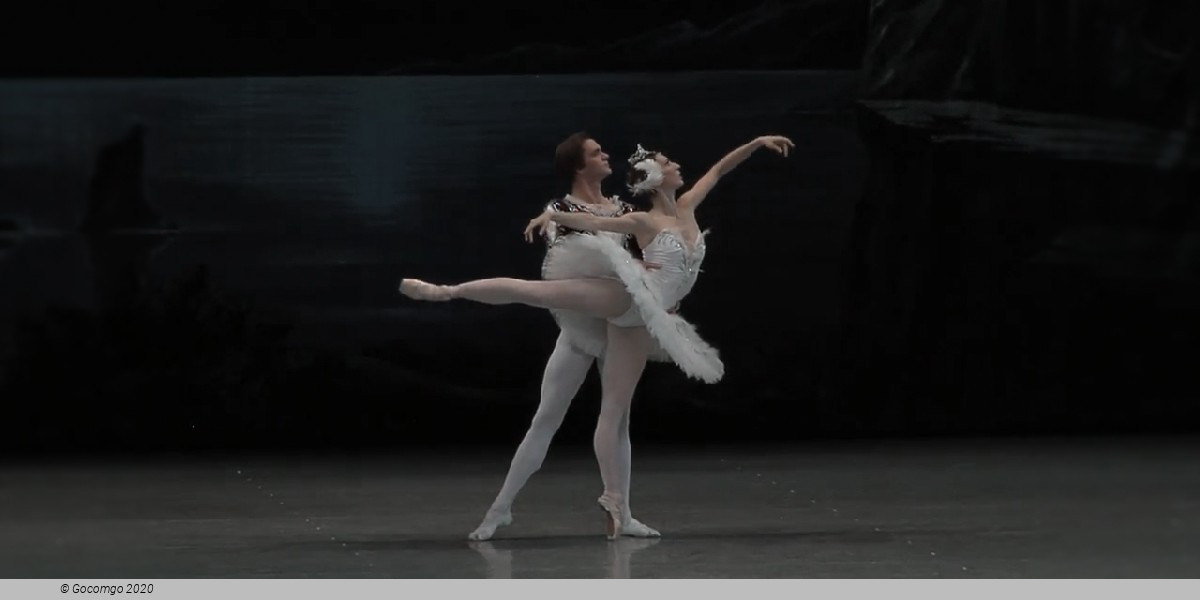
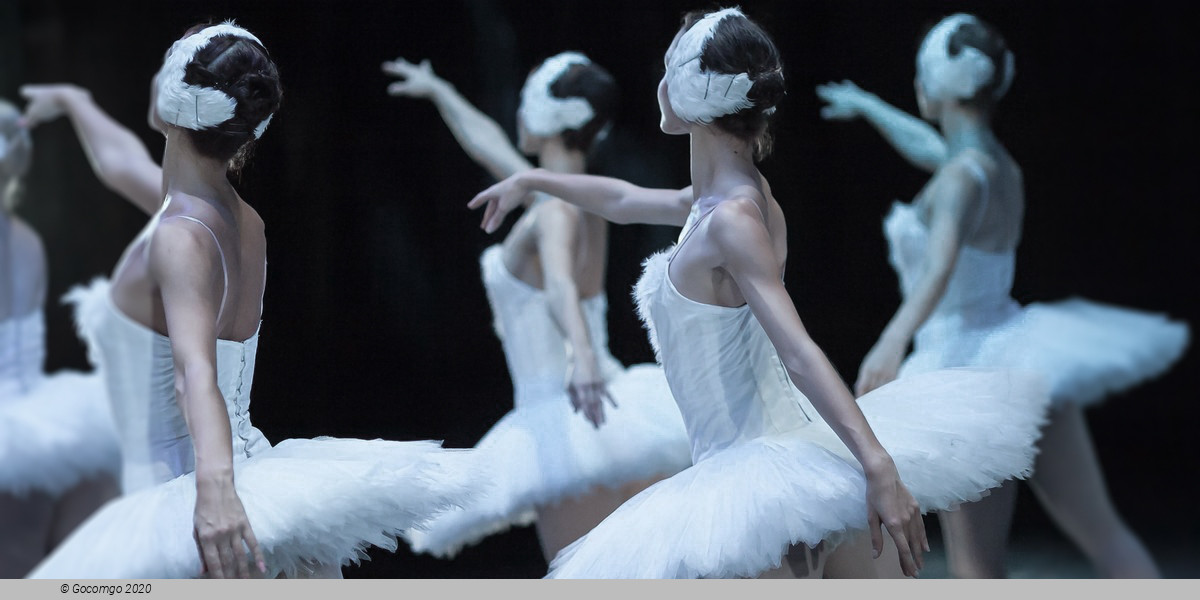
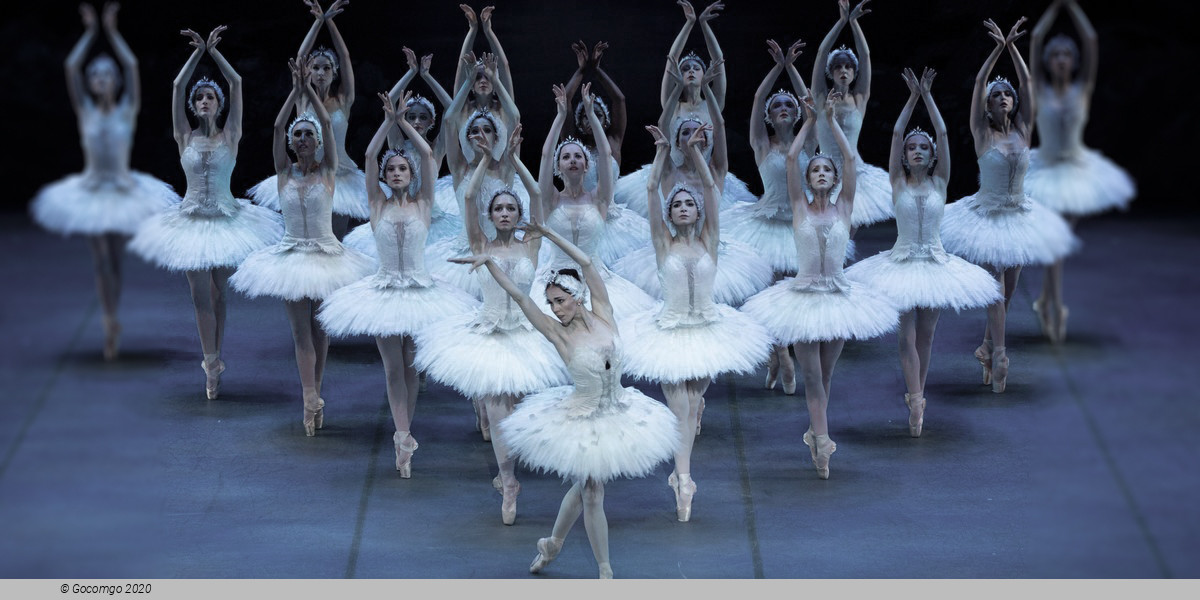
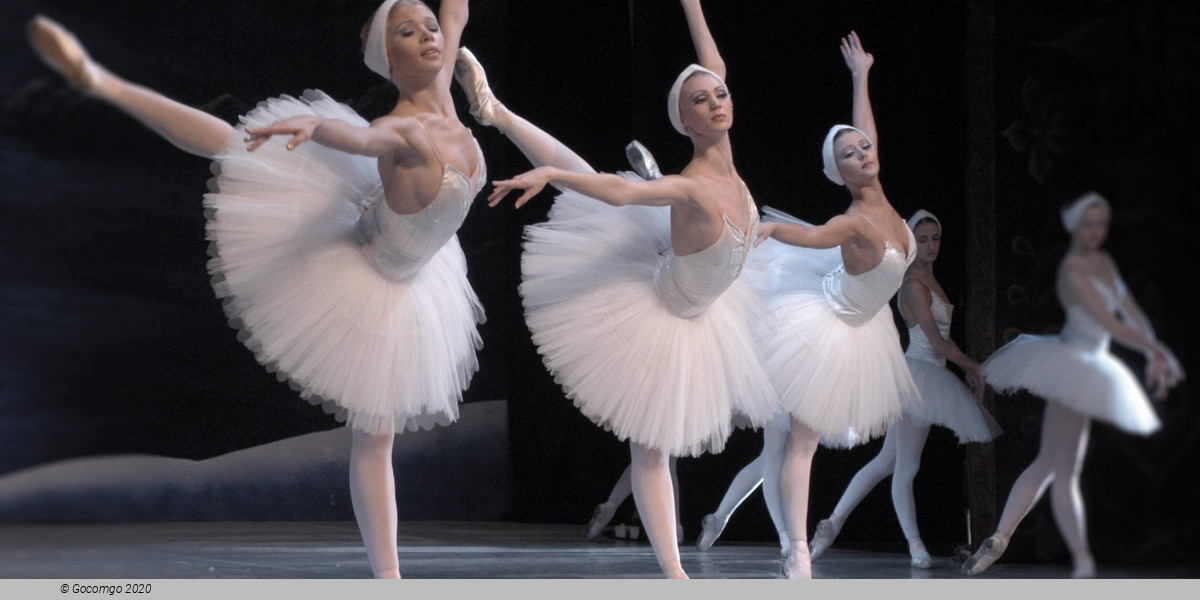
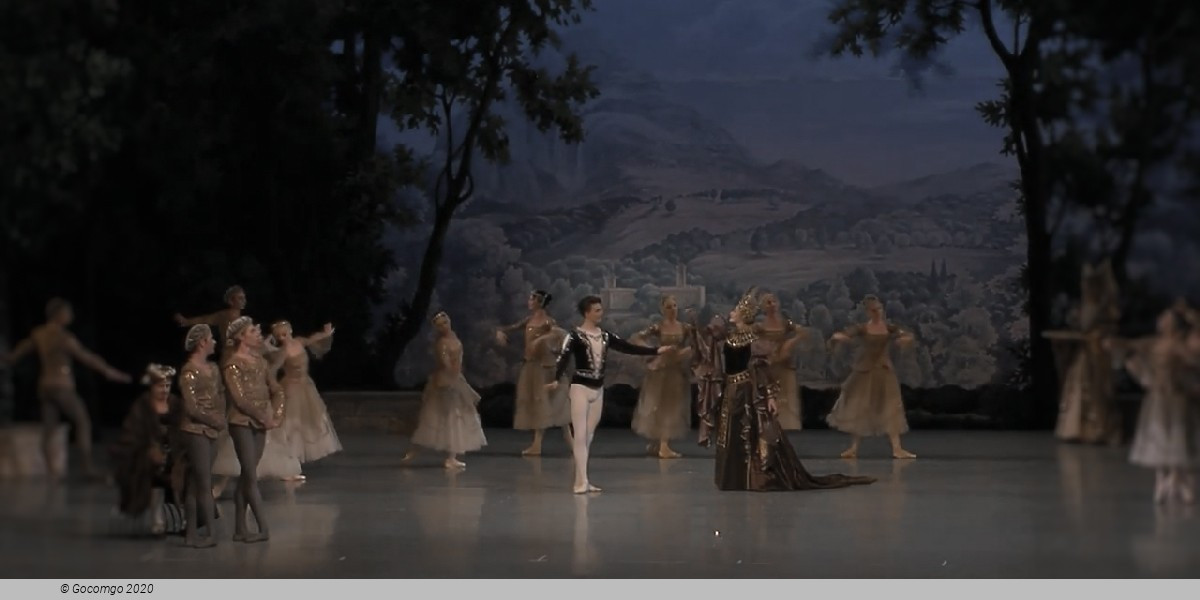
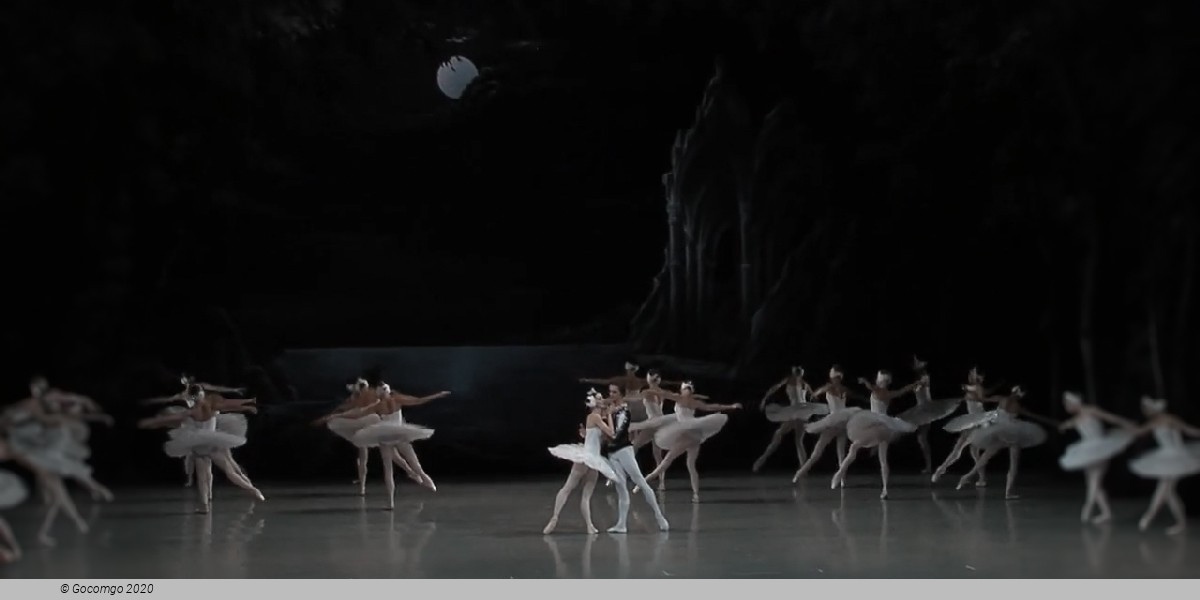
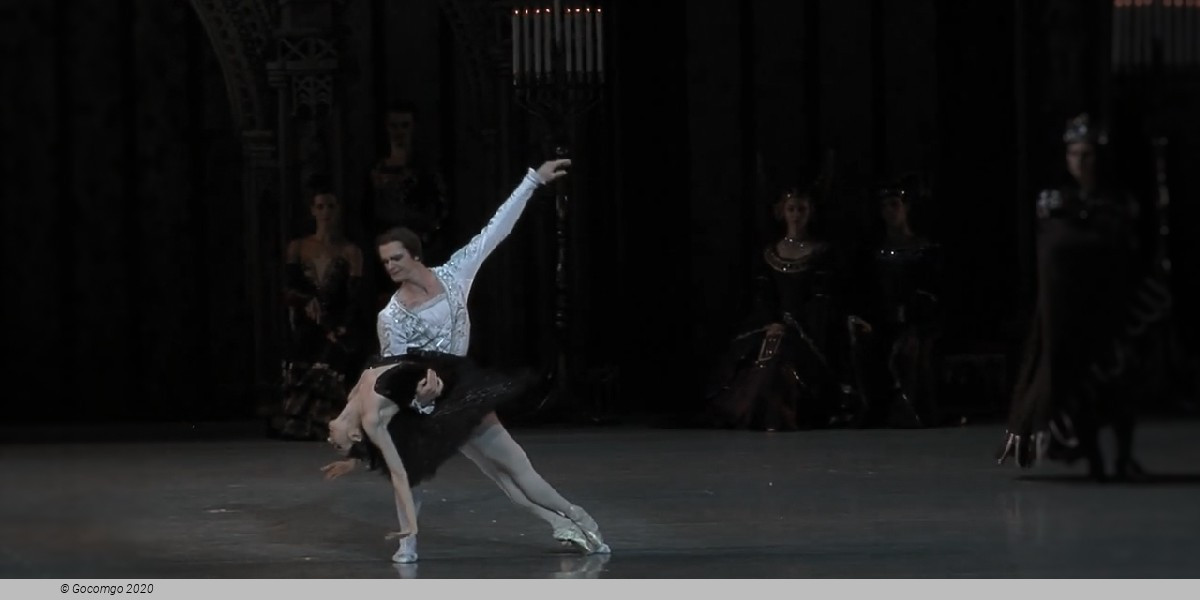
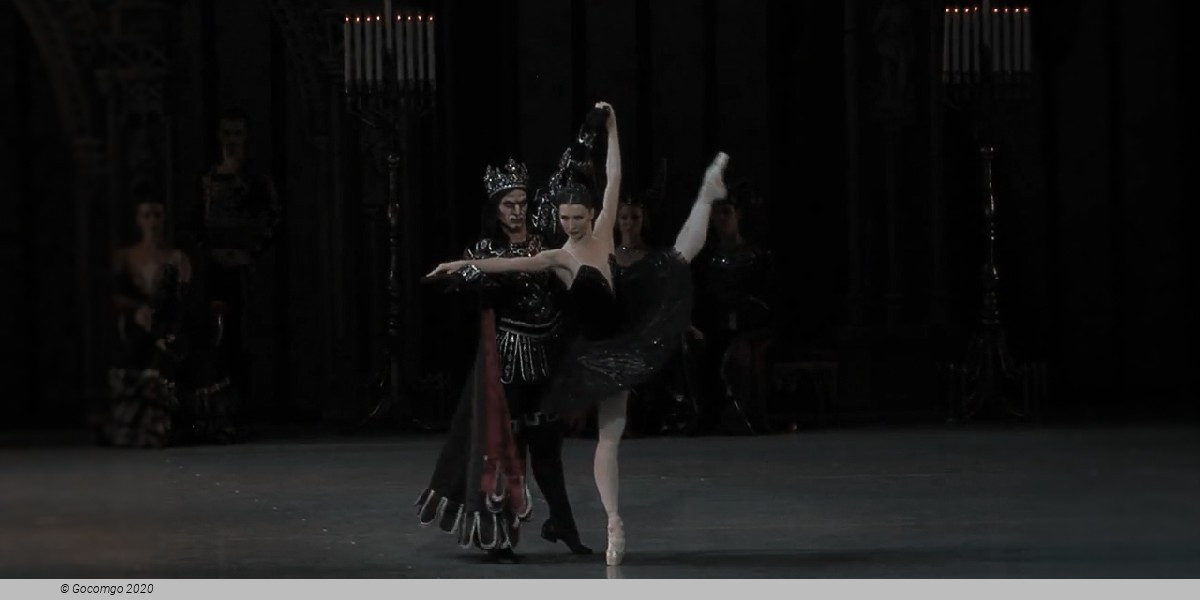
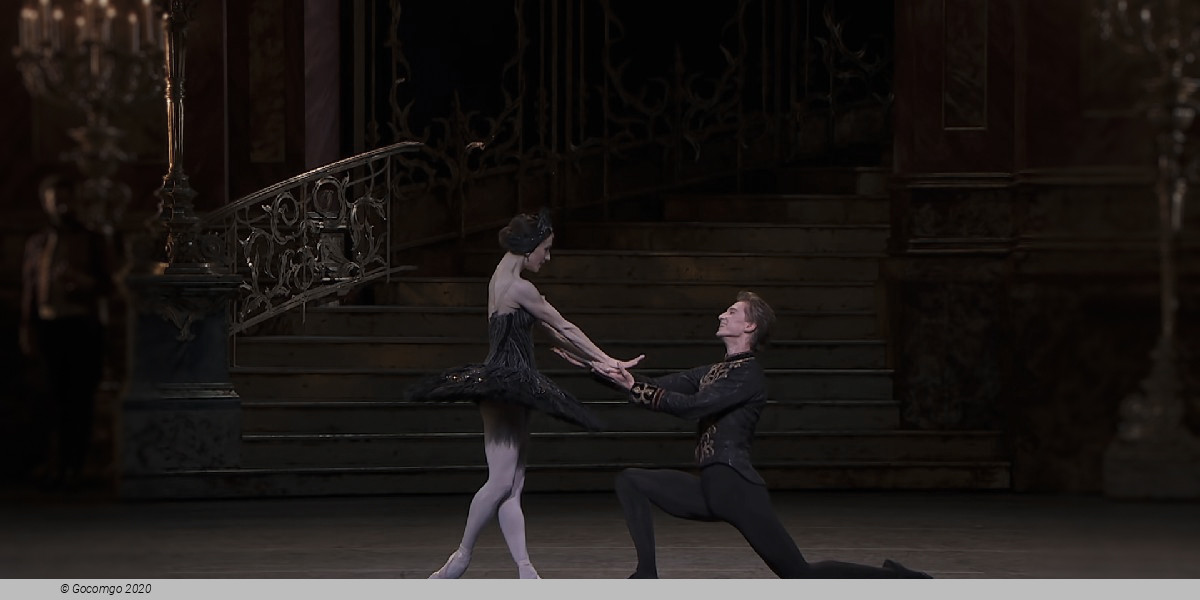
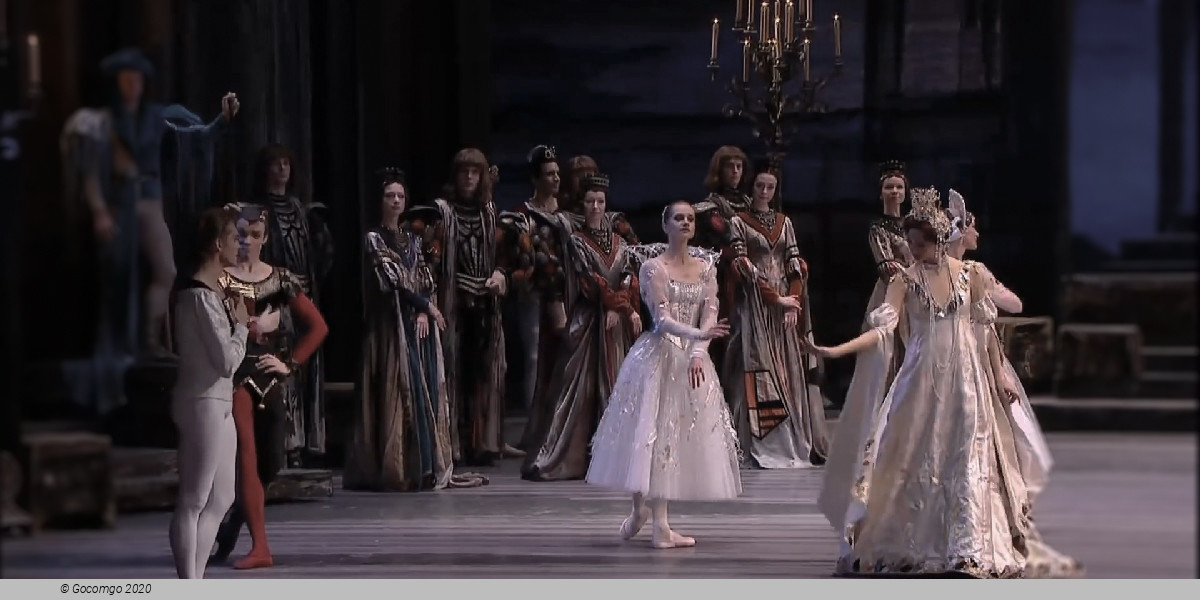
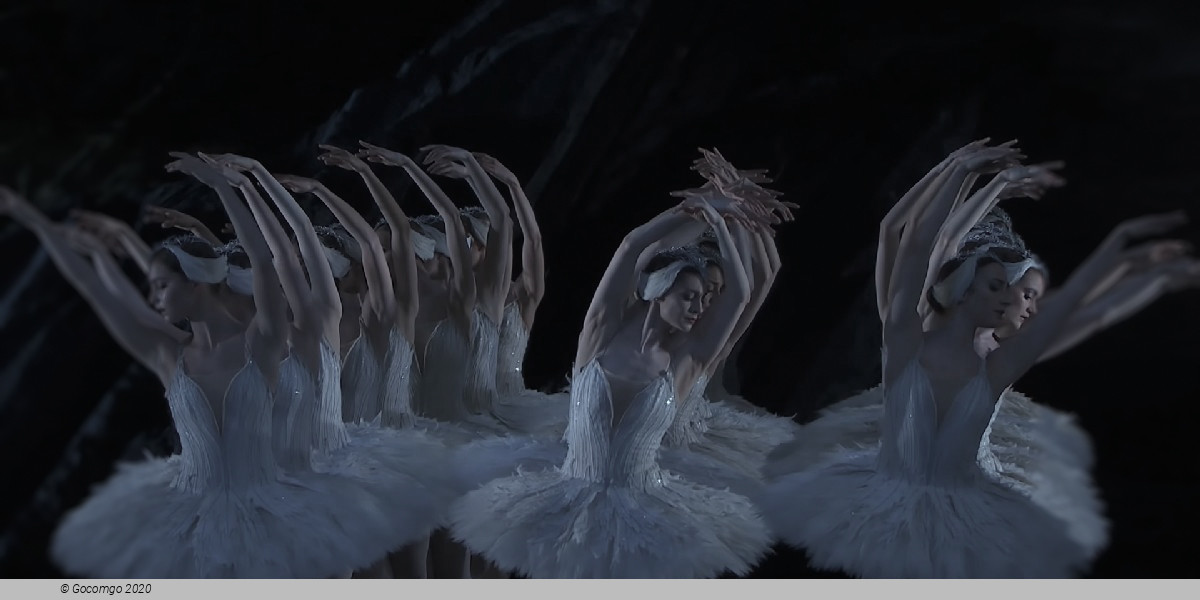
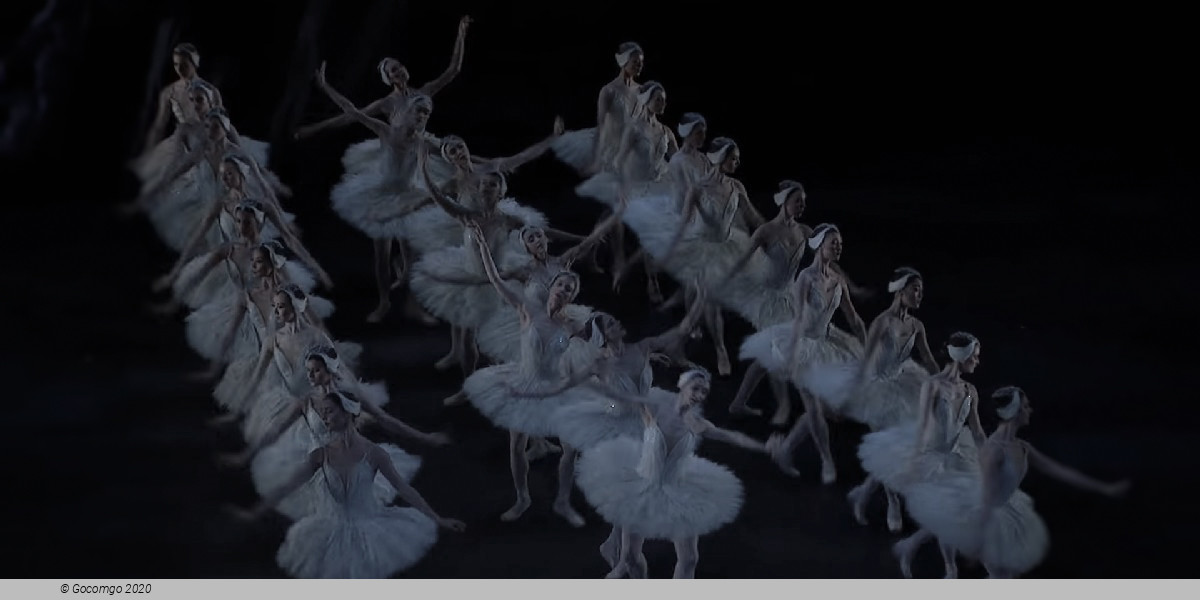
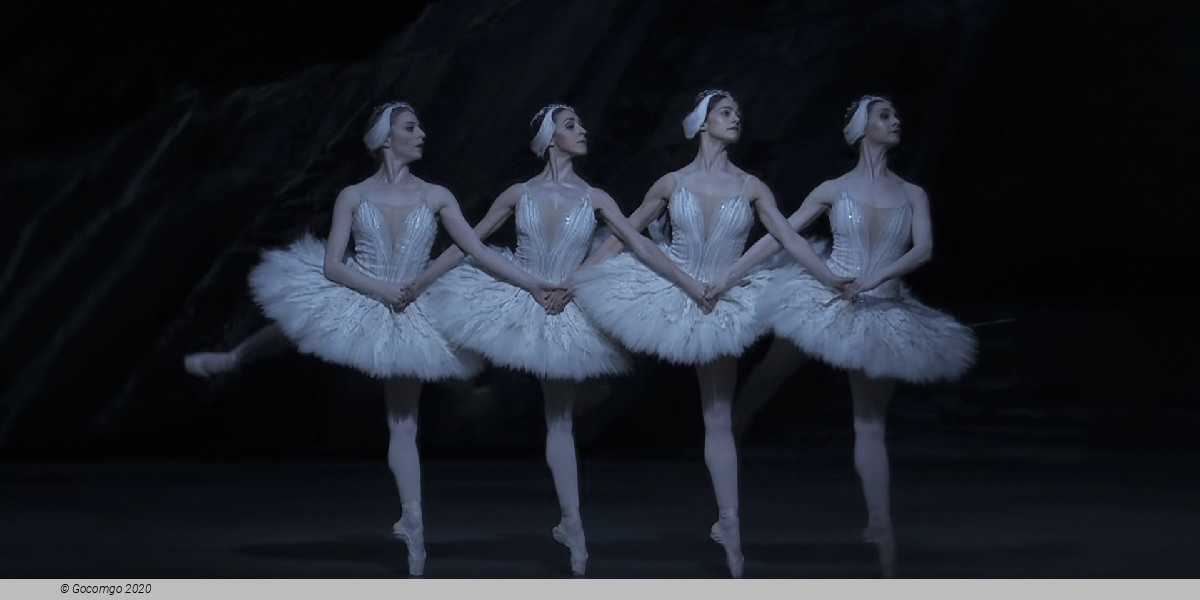
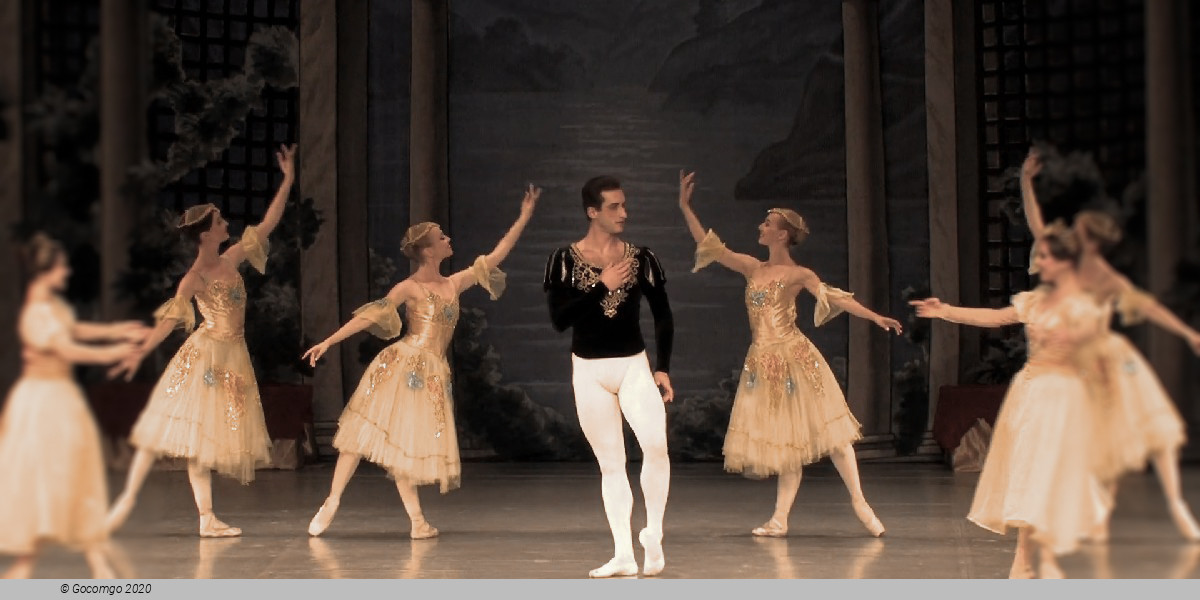
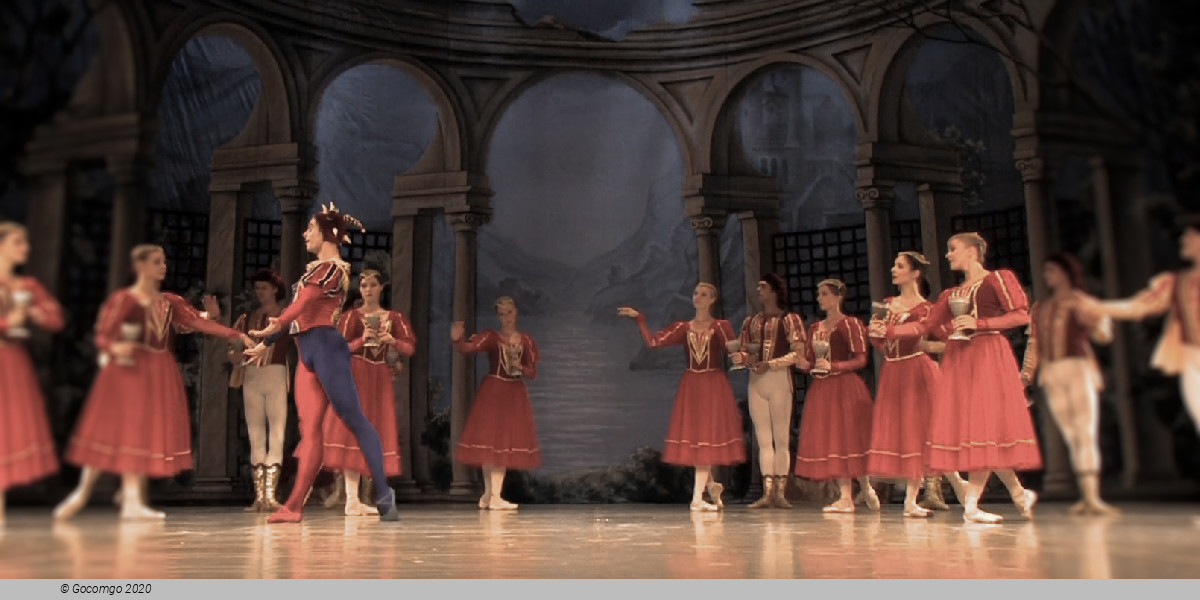
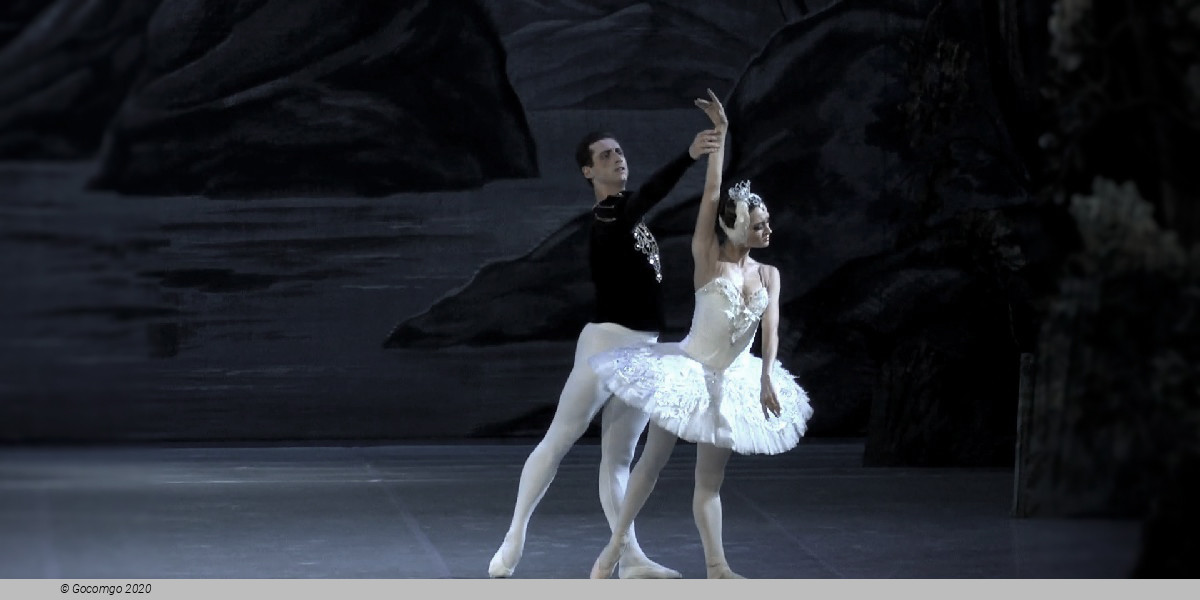
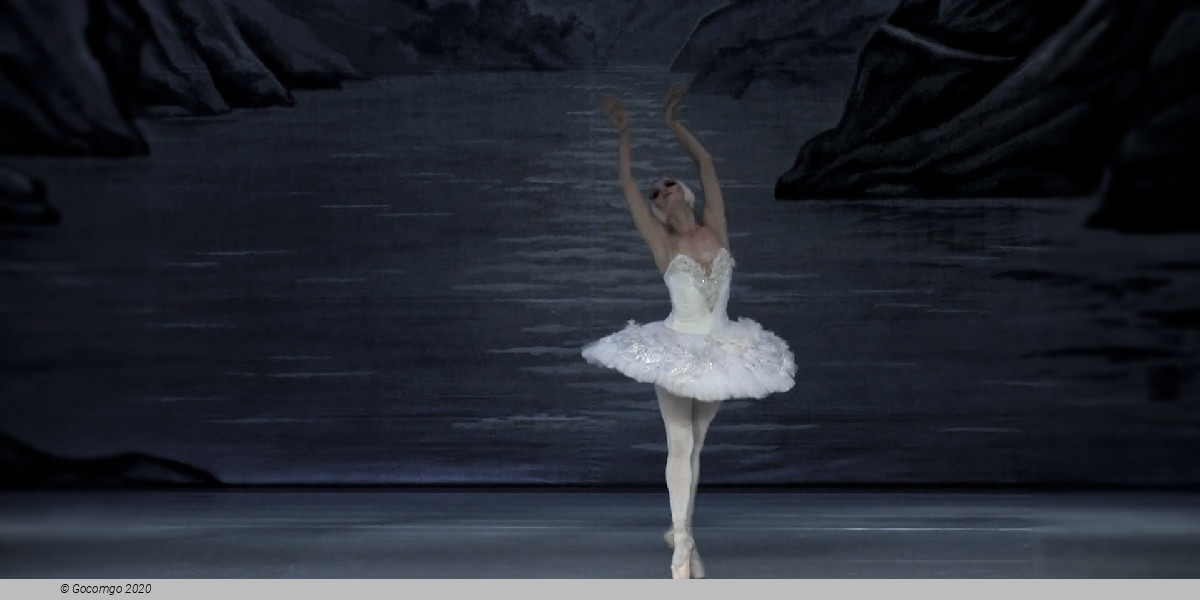
 Teatralnaya Square 1
Teatralnaya Square 1